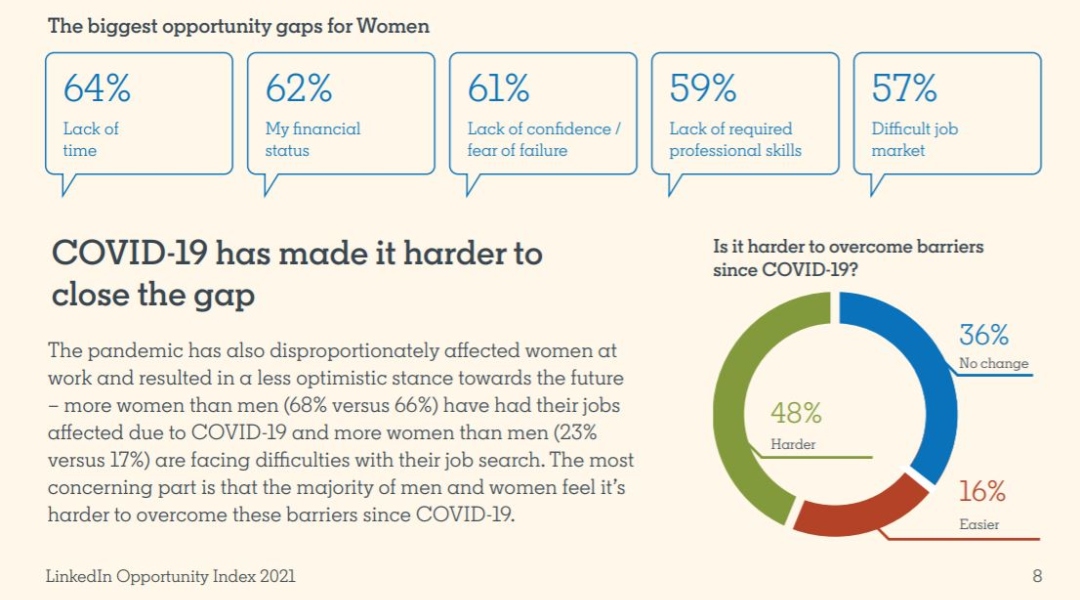Working from home may be great for some, but you need to look farther down the road.
In the early days of quarantine, many professionals in the country welcomed working from home, with 9 out of 10 even preferring to do so even if restrictions ease. With less time spent on commuting, flexibility in working hours, and a comfortable work environment, it is easy to see why people would choose to telecommute.
But not every industry thrives on this arrangement. As they are out of offices, the line between work and personal life can blur. Navigating the set up is possible but can ultimately impact career development.

What flexibility can do
Remote workers find themselves more productive at home primarily as the time for commuting is greatly reduced. On average, Metro Manila commuters lose 10 days and 17 hours of their time from rush hour in 2019.
Those in the non-service-oriented industries have the opportunity to be flexible in spending their workdays. But this might lead to working longer hours, which can be frustrating. There is stress and pressure to manage rising workloads, especially at this time when businesses are struggling to find their footing in this crisis.
The more an employee strives to keep up, the more difficult it is to set boundaries. In the office, it is easy to leave the rest of the work for the next day once the shift ends. At home, it is equally easy to keep responding to emails and finalizing presentations. This can happen especially if the workspace is in the bedroom or the dining area near the kitchen. It will be harder to draw the line between personal time and work when your surroundings are a distraction.

Distrust from the management
From an employer’s perspective, managing people outside the office is difficult. There is pressure to monitor everyone: each one has to be productive and available in cases of impromptu meetings.
Bosses may think those unable to quickly respond to calls and messages are doing something else not related to work. They are likely to form impressions on the employees’ work ethic and ultimately affect chances of getting promoted or receiving bonuses for their hard work.
The upper management may implement stricter monitoring policies. They may arrange for installing apps and software that will better oversee employees’ productivity and punctuality. Another way is to schedule more meetings to check up on progress. However, these can create an impression of distrust from the workers’ point of view.
Since many companies adopted work-from-home setups, some employees expressed concern over the lack of internet access. Many are shouldering their own WiFi or mobile data and with the terrible state of the internet in the country, presence and productivity are affected. These issues may be overlooked by the upper management—for reasons including lack of company budget.

Sustaining relationships
Telecommuting makes it almost impossible to create a company culture the same way in physical offices. For new employees, it takes a longer time to adjust and make new connections. In the office, colleagues can easily stop by a cubicle, engage in casual conversations, and invite others for lunch or dinner. But remote work marks a full stop on this close-knit camaraderie.
With Zoom calls and chat messages as primary communication channels, maintaining a friendship with colleagues and good relationships with bosses is limited. After all, physical interactions make it easier to observe facial expressions and body language better. Now, there is less opportunity to visit people, pitch in, discuss ideas, give updates, or simply catch up.

Barriers of women professionals
A work-from-home setup is significantly a challenge for women, especially mothers. Based on LinkedIn Opportunity Index 2021, the biggest opportunity gap for working women in the Asia Pacific is the lack of time, equating to 64 percent. This is because 45 percent of working women declare they are shouldering more responsibilities at home than men.
Working mothers, in particular, have to balance childcare with their job. As schools remain closed in the country and students are forced to attend online classes, mothers suddenly had to be hands-on with this aspect as well. Oftentimes, this happens with children in their formative years who need assistance with technical aspects—setting up Google Meet, navigating online teams, and the like.
In turn, the added stress and responsibility places a great hindrance on career development. Attention is always divided among the job, childcare, and household responsibilities.
While remote work can work out for some, it is always a matter of considering the many factors involved in it. Identifying one’s topmost priorities—be it family, personal time, dream job—is a good starting ground before committing to this set up in the long run.





